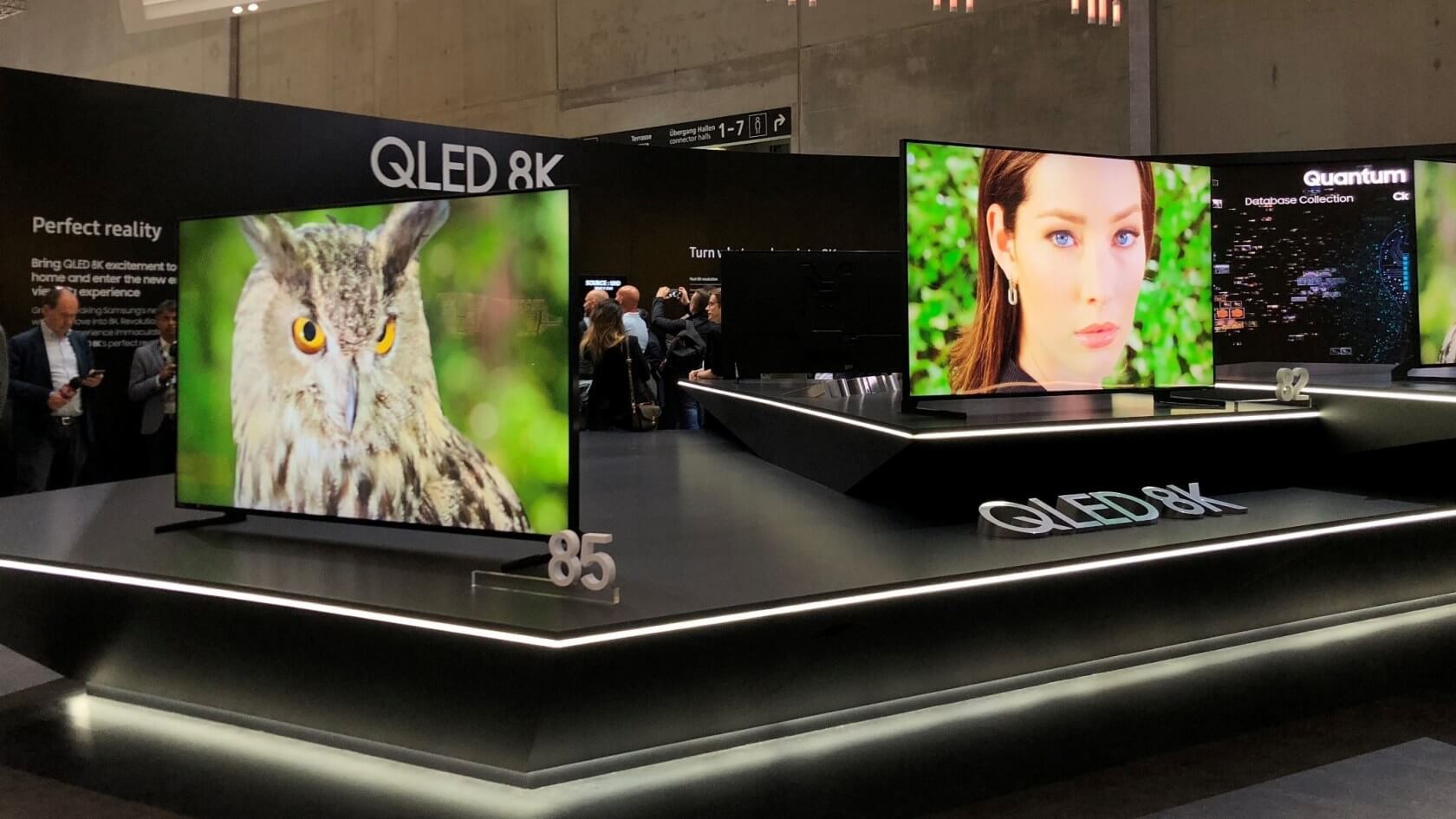The big picture: Extravagance for extravagance's sake is often our best taste of the future and a driving factor. Several anonymous sources have told DigiTimes that industry leaders within the supply chain are preparing to seriously ramp up 8K LCD panel production, with goals of 0.1% market penetration by the end of next year.
According to a marketing agency with sources within LCD manufacturing companies, nine players will be pushing the 8K panel market next year, across seven different sizes. Samsung will have the largest range, with 65", 75", 82" and 98" panels. Next comes LG, who'll be focusing on 65" and 75" but will also have a 98" model. Sharp seems to be bucking the trend, and will be unique in introducing 70" and 80" sizes.
Smaller companies saving on development costs will be sticking with larger sizes, such as BOE Technology and CEC, who will exclusively make high-end 98" panels, and CSOT, who'll manufacture 85" displays. One of the largest but least known manufacturers is AU Optronics, who make most displays used by monitor companies including Acer and BenQ. They expect 8K to account for 10% of panels over 65" by 2020, and will make 65", 75" and 85" variants.
8K TVs will mostly come in LCD variants according to reports, with LG to remain the exclusive provider of 4K OLEDs in 2019. According to a Mini-LED manufacturer, however, the majority of 8K TVs will use advanced LCD technologies that involve large amounts of sub-pixels to create better dynamic range. The large material requirements for 8K panels is the reason that parts suppliers are expecting decent revenue from them, despite low volume sales.
DigiTimes also reports that manufacturers are facing issues with low yield rates, high production costs and an absence of readily available components such as specific processors. Because of this, companies are expected to continue aiming at early adopters who will pay a premium, pricing sets out of reach of the average consumer.
The going price for an 8K TV right now is about $15,000, pretty impressive considering the first broadcast only launched a month ago. YouTube began supporting the format a couple years back, but it was only five years ago when the first 4K stream and 4K TV launched - could 8K become ubiquitous by 2025?
